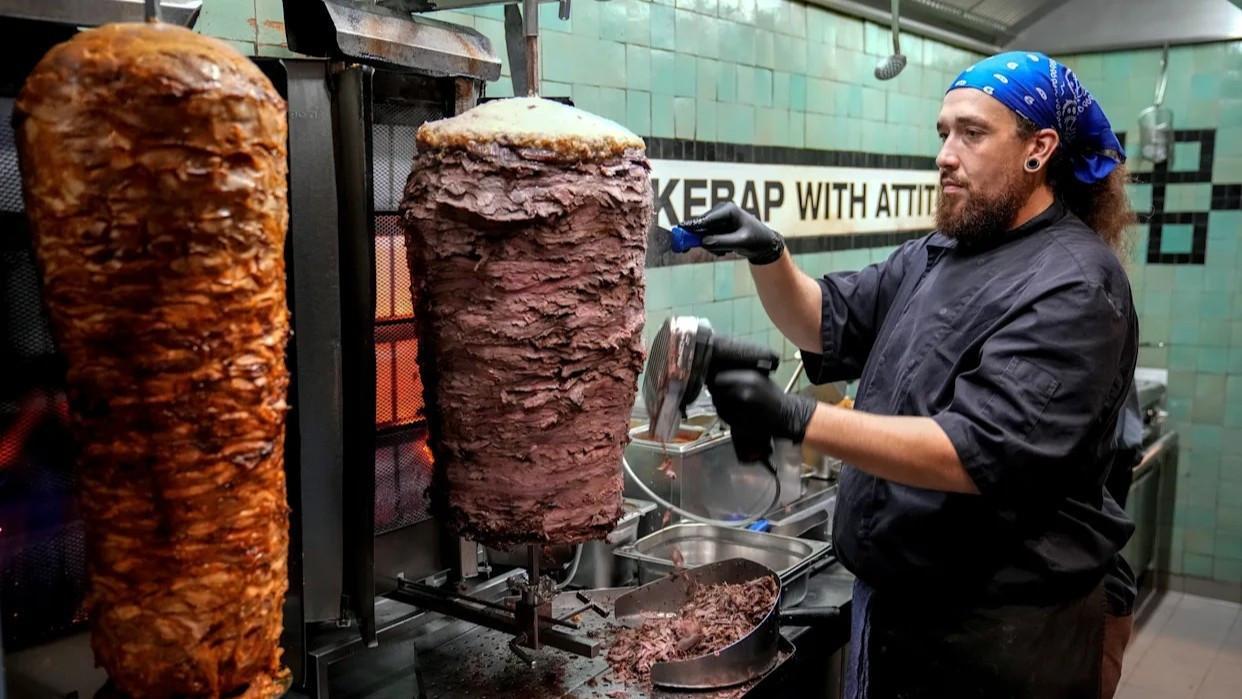
Germans are in kebab angst. They worry that their most beloved street food option, the spicy, juicy kebab in a pita that can be found on every street corner across Germany, may get more expensive — or even worse, that the country may be sliding into a national kebab shortage.
Workers at one of Germany's biggest kebab factories are locked in a bitter and ongoing fight with their employer over wages and working conditions.
For weeks, workers at the Birtat Meat World SE factory in southwestern Germany have repeatedly stopped the production line by walking off their jobs in "warning strikes,” demanding wage increases of 375 euros per month.
Their current salaries vary widely and haven't been disclosed. The Food, Beverages and Catering Union that represents them says that payment methods are nontransparent and workers are making vastly different salaries for the same kind of job.
Workers are also trying to organize a collective contract agreement for all employees with the help of the union.
Many workers are immigrants from Türkiye, Romania or Bulgaria, who spend long, tough workdays in the factory, which has near freezing temperatures to keep the raw meat fresh.
Birtat, which is located in Murr, 30 kilometers north of Stuttgart, has been making kebab skewers for more than 30 years. The company says it makes skewers of ground beef, veal, chicken or turkey kebab that can weigh up to 120 kilograms.
The meat is shock-frozen and delivered to restaurants all over the country.
Birtat says it supplies thousands of kebab stands and fast food places and reaches more than 13 million consumers every month. Some restaurant owners worry that a long-term strike may make kebabs more expensive or even scarce.
Germans already complain that the meaty snack, which used to be a cheap staple that sold for 2.50 euros about two decades ago, has become too expensive, with most places charging at least 7 euros.
Döner kebabs, first brought to Berlin by Turkish immigrants in the 1970s, are now sold everywhere in Germany.
About 2.9 million people with Turkish roots live in Germany — but the döner kebab has become so ubiquitous that many foreign tourists consider it typically German and don't even know about the snack's immigrant past.